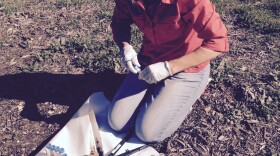Researchers on the South Coast are helping African scientists stave off starvation.
Geographers with the UC Santa Barbara and the U.S. Geological Survey’s Climate Hazards Group will be using remote sensing and climate data to predict poor harvests so that they can mitigate them and prevent severe hunger.
"What we're going to do is use new computer network technology to collect the information here and allow them to access it easily in Ethiopia, Kenya and Zimbabwe and then translate that satellite information into useful information, like predictions of poor crop production or reduced hydro power generation," CHG Research Director Chris Funk said.
It’s called NASA SERVIR, and it’s a joint venture between NASA and the U.S. Agency for International Development, which provides state-of-the-art, satellite-based Earth monitoring data and geospatial information. For example, data showing that rainfall began a month late would indicate some reduction of food. Rather than waiting for harvest, it could be known months ahead that food aid relief would be needed.




